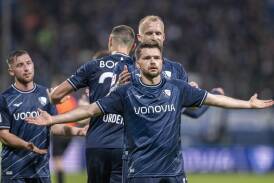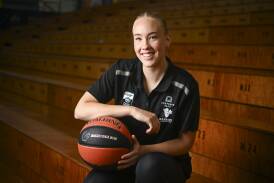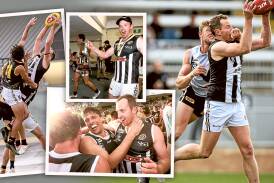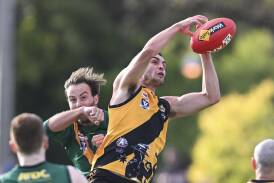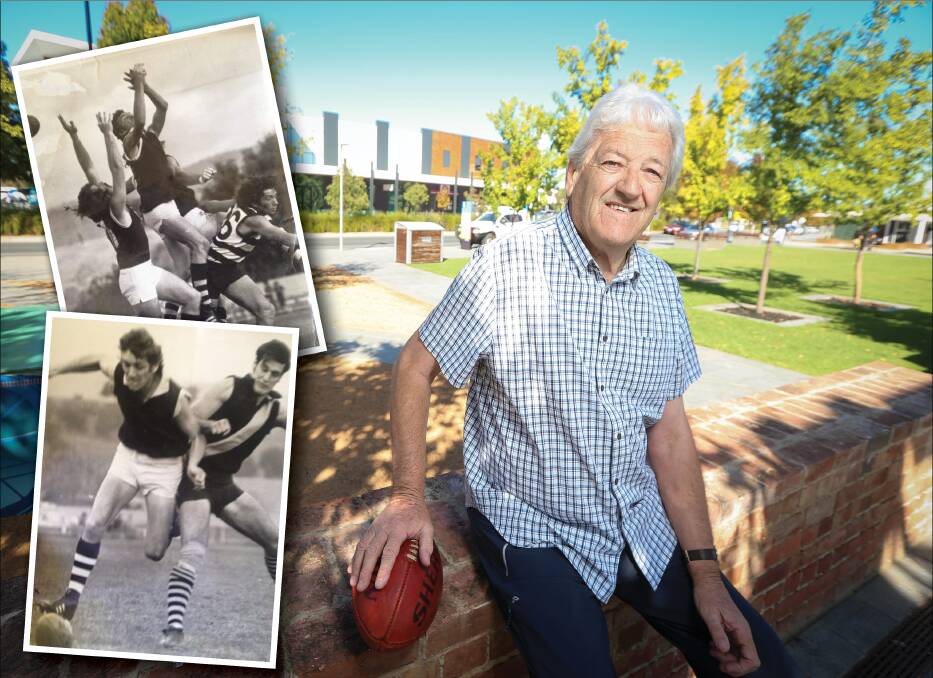
DES RICHARDSON'S record speaks for itself. A Team of the Century member with Wodonga, the high flying forward was also recently named in Kiewa-Sandy Creek's team of the past 50 years. Richardson caught up with The Border Mail's BRENT GODDE.
Subscribe now for unlimited access.
$0/
(min cost $0)
or signup to continue reading
BRENT GODDE: Did you have a nickname during your football career?
DES RICHARDSON: I have got no idea how it came about but I got dubbed 'Ibis' which stuck for some reason.
BG: You played all your junior football at Wodonga?
DR: I started off in 1963 in the midgets.
BG: You have fond memories of those days?
DR: All the kids from Wodonga used to lob up to Martin Oval No. 2 and Tony Conway and Jake Elkington would pick four sides each week to play amongst each other.
BG: Elkington was instrumental at Wodonga in the development of the juniors?
DR: I don't think there would be a player that's ever played for Wodonga and doesn't know Jake Elkington.
BG: During the 1960s Wodonga seniors played a lot of finals but always seemed to underachieve in September?
DR: That would be a fair comment. In my opinion Wodonga didn't know how to win the big matches.
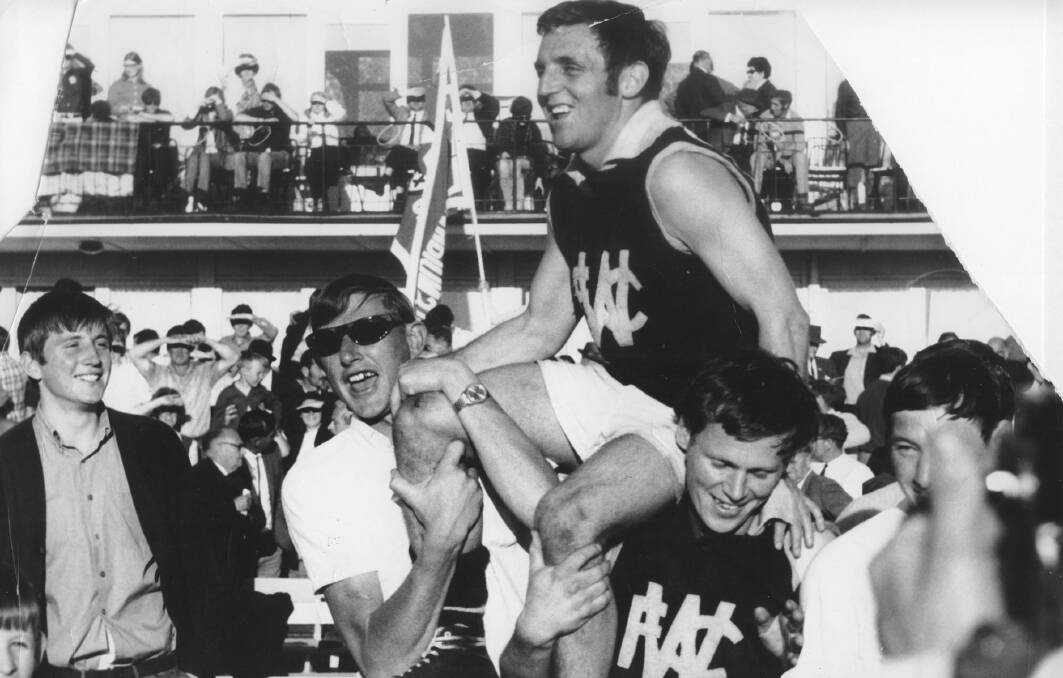
BG: You feel the arrival of Mick Bone from Collingwood as coach of Wodonga in 1967 sparked a stunning turnaround?
DR: Mick Bone taught Wodonga how to win - I have got no doubt about that. Mick was able to change the culture and instill that ruthless edge needed to be successful.
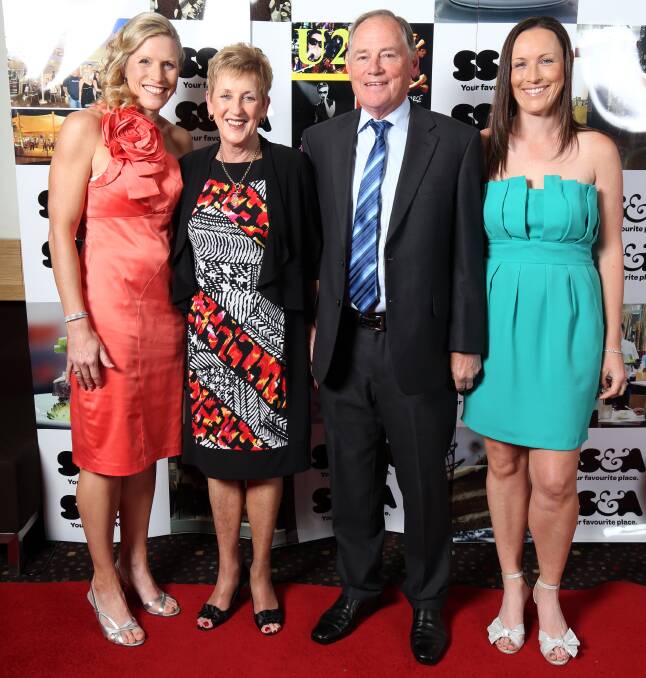
BG: Mick was able to deliver the Bulldogs their inaugural flag in the O&M in his first season in charge in 1967?
DR: Mick landed some handy recruits in Gary Williamson (South Melbourne) and Dick Grimmond (Richmond) with the rest of the side comprised of local talent. Blokes like Brian Gilcrist, Bevan Melgaard and Ray Smedley.
BG: You were a huge fan of Smedley?
DR: In my opinion Ray was the most under-rated player I saw play at Wodonga during my time at the club. He was blessed with one of the best footy brain's that I have ever seen.
BG: In 1968 you played seconds with the exception of one match when you made your senior debut as a 17-year-old?
DR: It was a forgettable debut. I was picked on the bench and spent the whole match on the pine.
BG: Were you fuming with Mick at the time?
DR: I won't lie, I was disappointed but I wasn't game enough at the time to ask Mick why I didn't get to go on the ground. I still don't why he left me on the bench to this day.
BG: How did you rate Mick as a coach?
DR: Mick obviously played VFL/AFL and was a very talented player. He was also very tough and ferocious the way he attacked the ball.
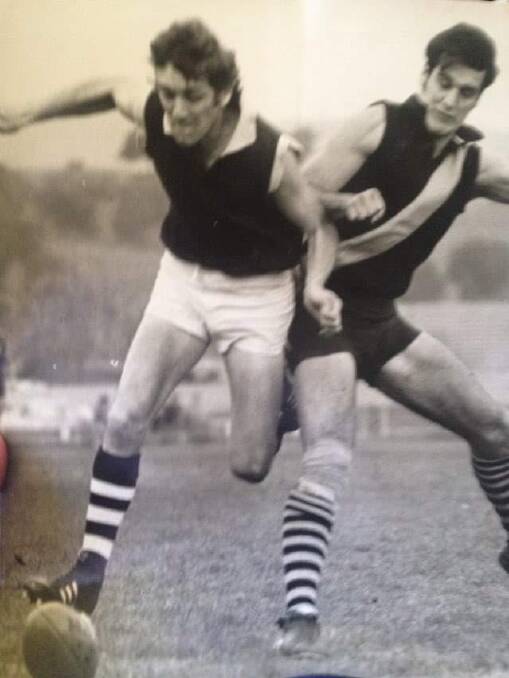
BG: The following season in 1969 you were good enough to cement your spot in the senior side?
DR: I played predominantly on the half-forward flank. There were a lot of blokes in the side that I had played juniors alongside including Terry Smith, Mick Korneluk, Vin Doolan, John Cole and Bruce Hiskins.
BG: You were fortunate enough to play in a flag in your first year of senior football?
DR: I was probably a bit young to fully appreciate how hard flags were to win back then. I remember Terry Smith was a match-winner after kicking seven goals.
BG: The arrival of Bone coincided with a golden era for the Bulldogs.
DR: Mick led the club to three grand finals for two flags in his first three years. From memory we went through undefeated in 1969 and were undefeated for 27 matches in-a-row.
BG: In 1970 disaster struck when centre half-back Brian Gilcrist broke his leg half-way through the season?
DR: Brian was a star and it's impossible to replace players of his calibre. We lost the preliminary final by one point to Myrtleford that year who then went on to win their one and only flag in the competition.
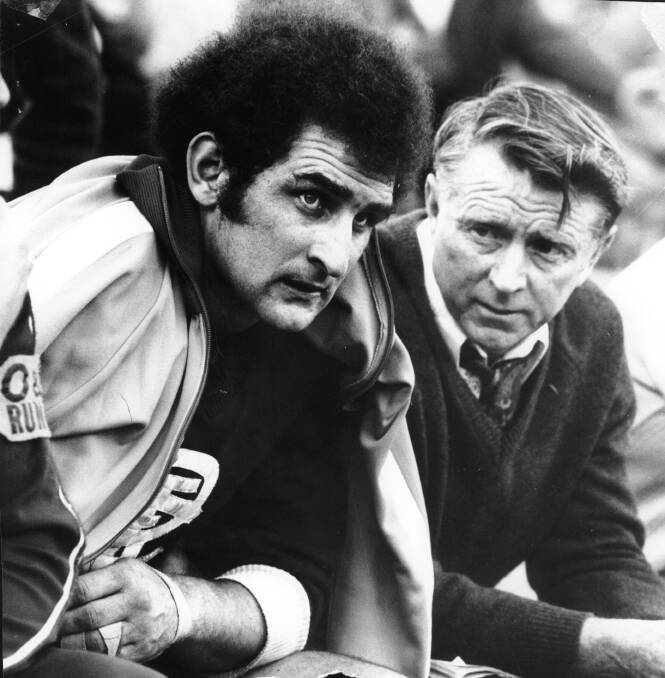
BG: You had a breakout season in 1970 to finish runner-up in the Bulldogs best and fairest behind Vin Doolan. The following year you accepted an invitation to try out with North Melbourne?
DR: I played an intra-club for the Roos in 1970 and Ron Joseph kept in contact with me after that.
BG: Ron's persistence paid off?
DR: I was working as a stock and station agent in Wodonga and my boss was good enough to offer me the opportunity to train with North Melbourne for three months and if it didn't work out I could still come back to my job.
BG: No doubt a huge change in lifestyle for a country kid?
DR: It was an eye-opener. Phil Baker who was an Albury junior who went to North Melbourne the same time as me and ended up playing in a flag.
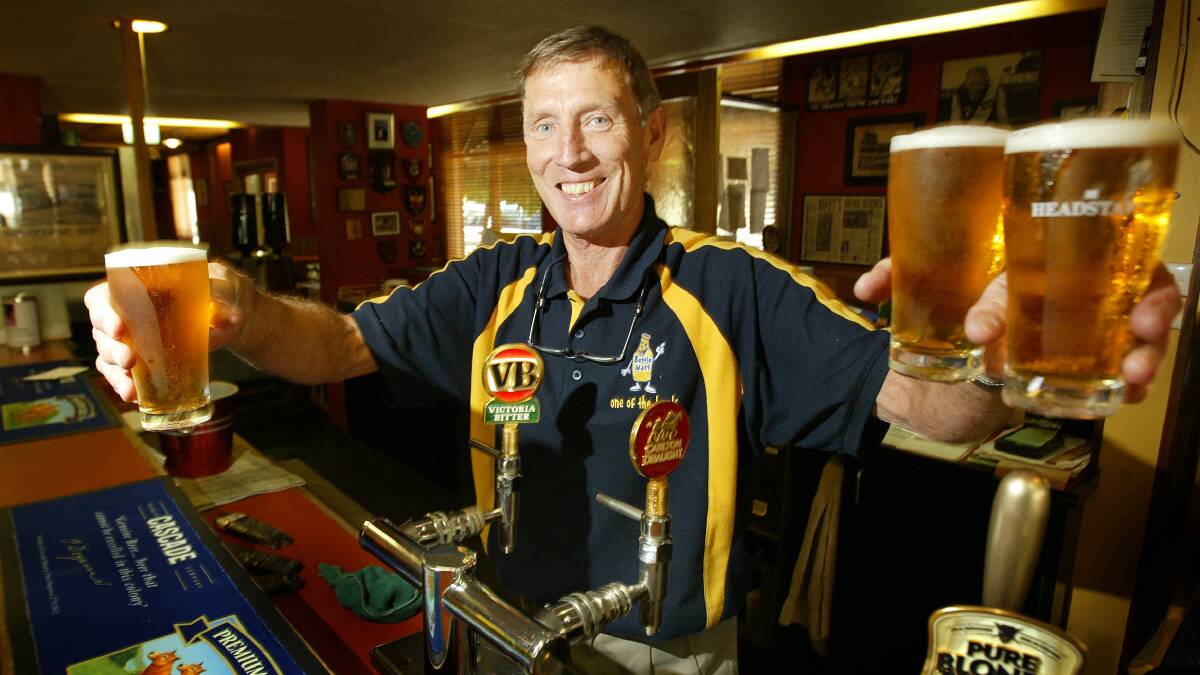
BG: There were a few familiar faces at Arden Street.
DR: John Perry switched from Richmond and Vin Doolan also joined the Roos that season.
BG: Ron Montgomery was also at the Kangaroos?
DR: I remember Ron was the first person I met when I walked into the club rooms. Obviously I didn't know him back then and I think Ron had just come up from the thirds the previous year.
BG: What are your memories of big Ron?
DR: Ron was a talented player and was good enough to crack it for a senior game. Ron's cousin Ken Montgomery was a premiership player with the Roos.
BG: You played on Keith Greig in a practice match?
DR: We both played on a wing, the only problem for me was Keith kept running off with the ball.
BG: You ended up playing six matches for the reserves on match permits before returning home?
DR: My main aim when I relocated to Melbourne was to make the Kangaroos' senior list which I was able to achieve. But I wasn't a huge fan of living in the city and had a job waiting for me at home so I moved back home.
BG: Do you regret your decision?
DR: Not really, I'm more than comfortable with my choice.
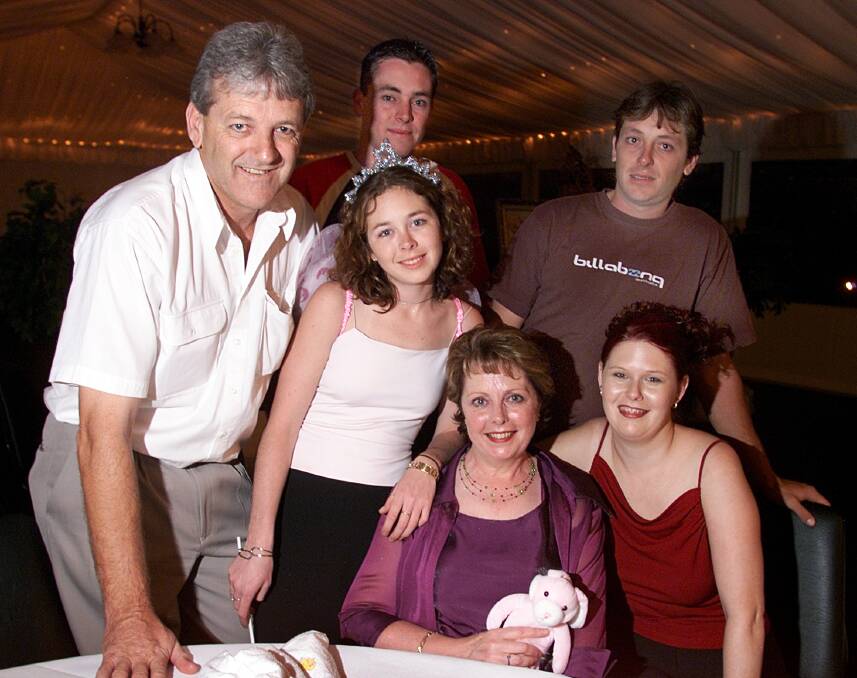
BG: The silver lining of your short stint at Arden Street was that you met your wife Sue?
DR: Yes, Sue has been a tower of support for most of my life and we were lucky enough to have four children together that we are both proud of. It's fair to say the kids spent a lot of time around football clubs growing up.
BG: You have two sons and two daughters?
DR: My eldest is Jacinta, then Mark, Elisha and Ryan.
BG: A lot of your family also played at Kiewa-Sandy Creek?
DR: Mark played thirds before retiring with a crook back. Elisha played junior netball and Ryan also played at both Wodonga and Kiewa. My granddaughter Chelsea O'Brien-Richardson also played junior netball and A and B-grade. Ryan's partner Abbey O'Brien played and coached the A-grade for a couple of years when Ryan was coaching out there.
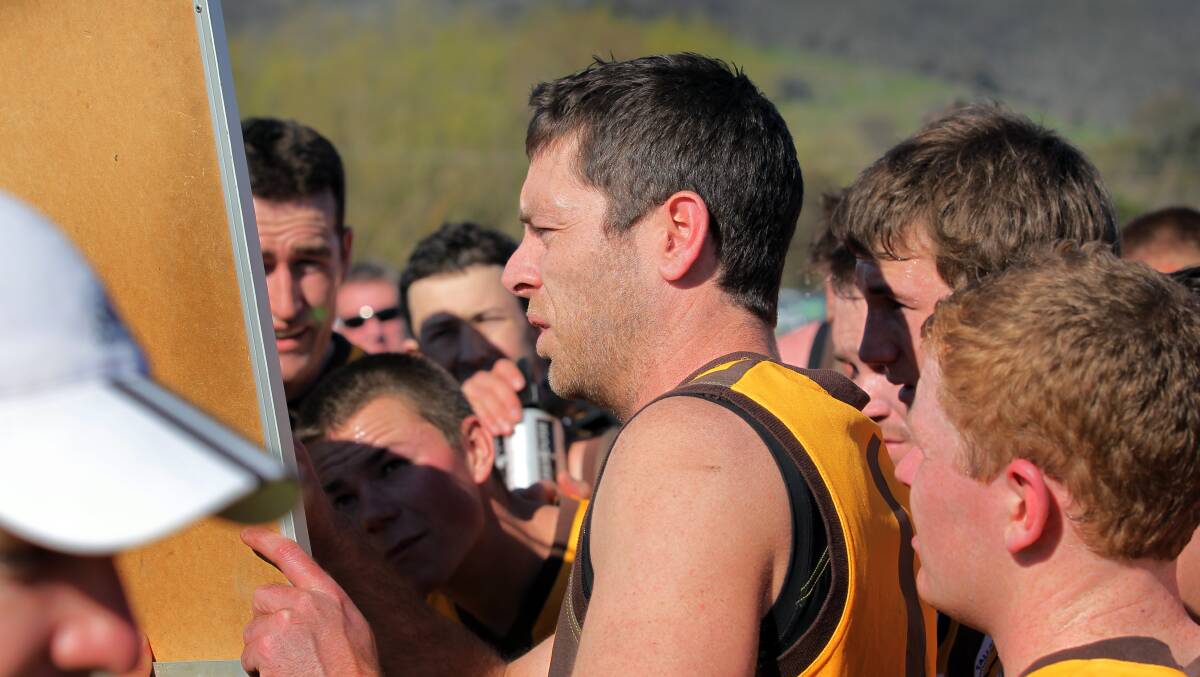
BG: Ryan and yourself have a unique record in that you are the only father and son to have coached Kiewa-Sandy Creek to flags?
DR: Ryan played 75 senior matches for Wodonga including the 2003 losing grand final against Corowa-Rutherglen. Ryan was assistant coach under Simon Bone for three years for one premiership. He then also coached Kiewa to another two flags in 2011 and 2014.
BG: No doubt you would be proud to see your son Ryan follow in your footsteps?
DR: It's right up there as far as highlights are concerned.
BG: Richmond Hall of Fame member Barry Richardson is also related to you?
DR: Barry is my cousin and his older brother, Noel, played at Wodonga.
BG: Your brothers were also handy players?
DR: I am one of nine kids and have four brothers Frank, Kevin, Vince and Paul.
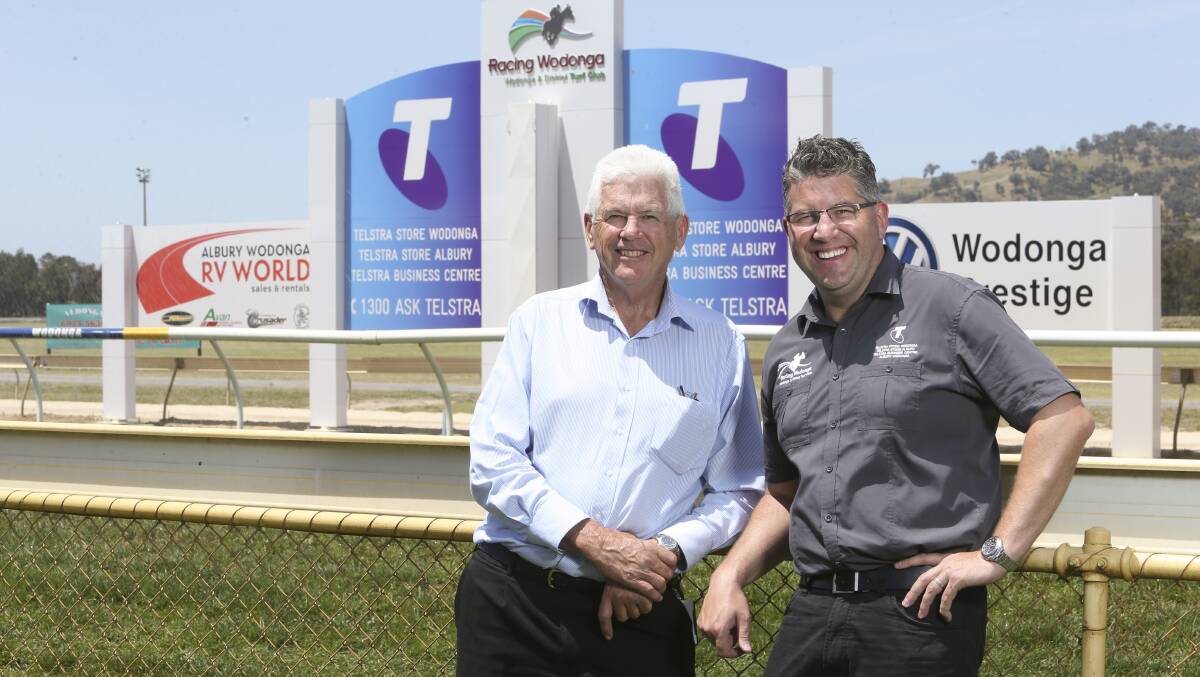
BG: The family holds a unique record at Wodonga?
DR: Frank, Kevin and I were the first three brothers to all play in the same senior side at Wodonga in 1972.
BG: Who played the most matches for the Bulldogs?
DR: Frank played 80, Kevin 149 and I played 204.
BG: You played on Kevin after you both headed bush in 1980?
DR: Kevin was appointed coach of Wodonga Demons and I went out to Kiewa-Sandy Creek as an assistant coach.
BG: Who won the family bragging rights?
DR: It was in the preliminary final that season and I was playing centre half-forward. I hate to admit it but Kevin beat me and Wodonga Demons went on to play in the grand final and lost.
BG: What was it like playing on the bro?
DR: I didn't enjoy it and I don't think Kevin did either.
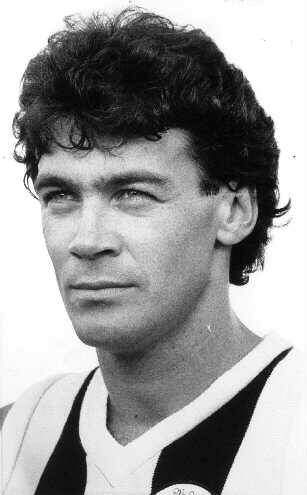
BG: You were ultra consistent for the Bulldogs when you returned from Arden Street to finish runner-up in the best and fairest in 1970, 1972 and 1973.
DR: Wodonga had some outstanding talent running around in the 1970s. Blokes like Peter Sharp, Jim Britton, Frank Reynolds, Bob Craig and Jack O'Halloran.
BG: You also played under coach John Smith at the kennel?
DR: John arrived in 1975 and was fairly young to be coaching. I rated him as a coach but we just didn't have the players good enough to play finals.
BG: You also played under John Perry in 1977?
DR: I think John was able to get blokes including myself the fittest they have ever been.
BG: How did John perform in the O&M after he had finished playing for Richmond and North Melbourne?
DR: We never got to find out after he got crunched in a marking contest against Myrtleford and seriously injured his back. John spent most of the season in hospital recovering.
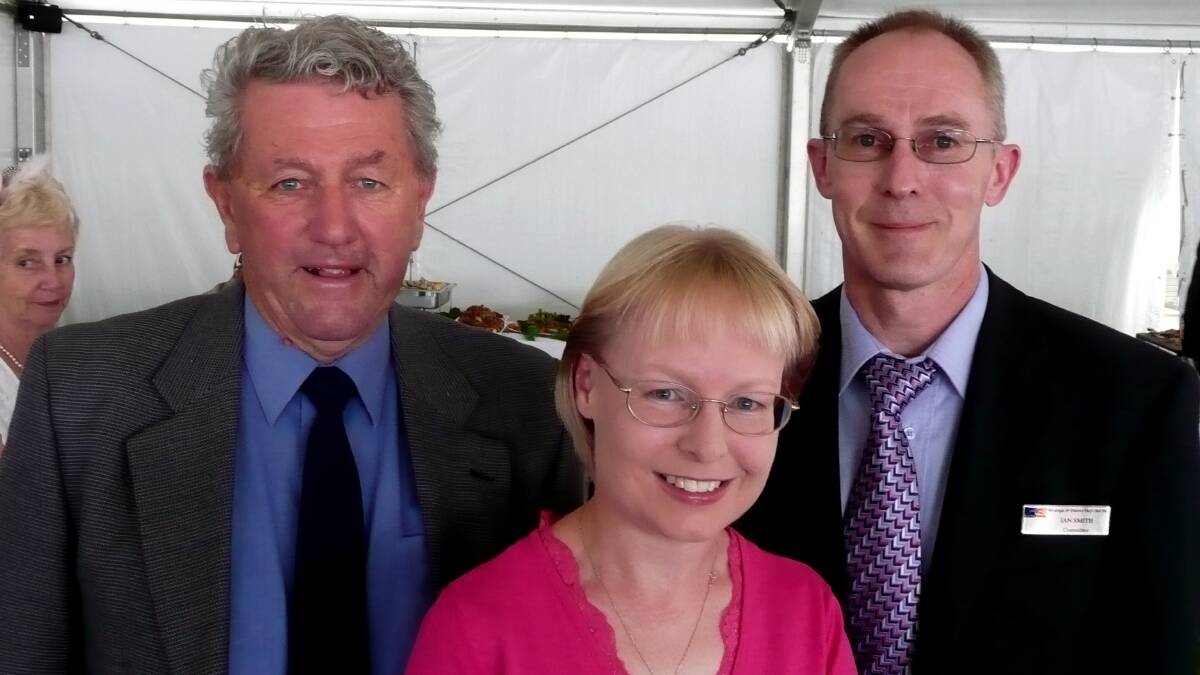
BG: Frank Hanrahan replaced John as a non-playing coach?
DR: I thought Frank did a fantastic job under the circumstances and we ended up getting rolled by Wangaratta by a couple of goals in the preliminary final.
BG: In 1977 you made the switch to centre half-back after predominantly playing at centre half-forward for most of your career at Martin Park?
DR: That was John's idea.
BG: Arguably it was one of your best seasons after finishing fourth in the Morris medal?
DR: I was a bit surprised when John told me he wanted me to play centre half-back but I enjoyed the challenge.
BG: In 1979 one match at the Albury Sportsground you started the first quarter at centre half-back but then switched to a forward pocket at the first change and proceeded to kick 10 goals?
DR: I was getting flogged in the first quarter so I got moved to a pocket and bobbed up with 10 goals. We still got rolled that day.
BG: You witnessed a bizarre incident when playing against Corowa-Rutherglen one match?
DR: Alan 'Froggy' Thompson was umpire and also played Test cricket for Australia. Shane Neagle from Corowa belted one of my teammates.

BG: Did he get reported?
DR: This is the bizarre part of the story. The umpire said to Neagle, 'you're reported, turn around I want your number.' Neagle refused to turn around to show the umpire his number.
BG: What happened next?
DR: The umpire started walking towards Neagle so he kept walking backwards so he couldn't see his number. Then he started jogging backwards and proceeded to go through the goals, over the fence and into the trees and yelled out I'm 'not coming out.'
BG: How long did it hold the match up for?
DR: There was a bit of a standoff for at least 10 minutes before the umpire finally got his number. I think he ended up getting two weeks at the tribunal.
BG: Your last match for the Bulldogs was in the 1979 grand final against Wangaratta Rovers?
DR: We were 10 points up at the last change but Rovers finished full of run to win by five goals.
BG: Wodonga had some talented players that had come from bush clubs?
DR: Blokes like Greg Wood, Dallas Kotzur and 'Rowdy' Lappin were all more than handy O&M players.
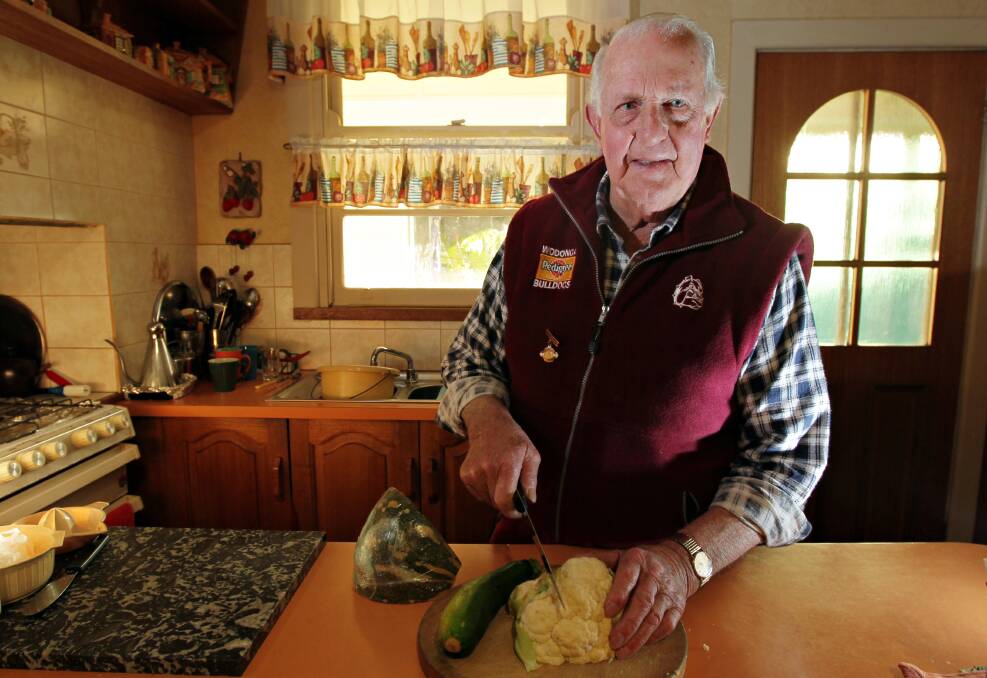
BG: You played your 200th match during that season?
DR: It was an honour at the time and I think I was the fourth Bulldog to achieve the milestone along with Jake Elkington, Brian Gilcrist and Gary Williamson.
BG: The following season you join Kiewa-Sandy Creek as an assistant coach under Gilcrist?
DR: I thought the time was right to head bush after 11 seasons in the O&M. Kiewa was good enough to offer me an assistant's role with the view to coaching the following year.
BG: Some Bulldog greats of that era went on to coach Kiewa?
DR: Alan Rodgers, Ray Smedley and Gilcrist all had a lot of success coaching the Hawks.
BG: You are of the opinion that Kiewa's hard working committee has a lot to do with the Hawks' being one of the powerhouses of the competition?
DR: The club has always been well run and a credit to blokes like Dan Toner, Ken Coulston, Allan Croucher and Greg Baker.
BG: The club has firm views on player payments?
DR: The club has always kept a ceiling in regards to player payments. Put simply if you are chasing big bucks, don't go to Kiewa-Sandy Creek.
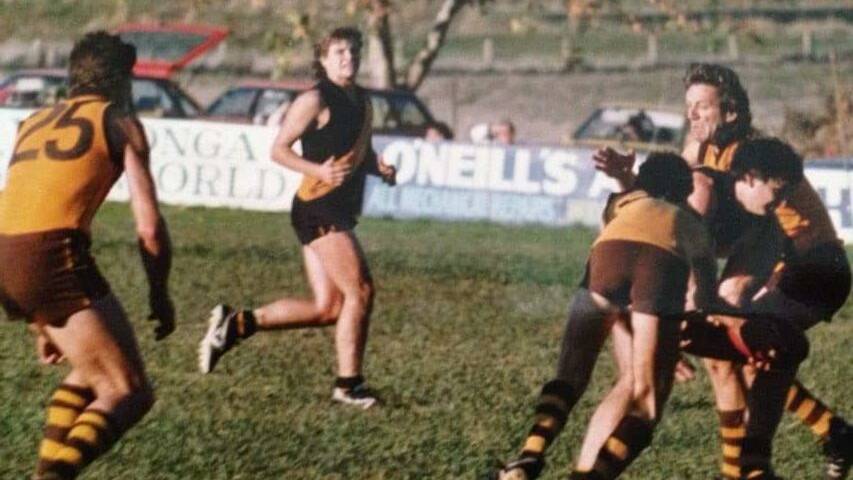
BG: It has stood the club in good stead with the club boasting an enviable finals record?
DR: The thing about Kiewa is that they never bottom out and are always ultra competitive.
BG: You replaced Gilcrist as coach in 1981 which sparked a golden era for the Hawks with five grand finals during your reign as coach for three flags?
DR: In 1981 there was very little separating Tallangatta and us. Mick Maddox was coach of Tallangatta and had some stars in Mark McSweeney and Barney Brown. I think we won the second semi-final by two goals.
BG: How did the grand final unfold?
DR: It was a tight tussle all match before we kicked a few late goals to win by about 18 points.
BG: In 1982 a chance meeting at a Wodonga Hotel led the Hawks to signing some prized recruits?
DR: Noel Crossman was a Kiewa player and was having a beer and a young bloke sidled up next to him and they started having a chat. The bloke turned out to be Paul Anthony who was from King Island.
BG: Sounds like he was looking for a club to play at?
DR: Noel invited him out to Kiewa to train and he lobbed out there with four mates. Two of them would go on to be more than handy players in Paul Anthony and Richard 'Crunchie' Barr. John Flack was another one but played mainly in the reserves.

BG: 'Crunchie' was a bit of a legend in the Tallangatta league?
DR: 'Crunchie' certainly was but unfortunately is no longer with us. John Flack also got killed after he got shot at a party one night in Wodonga.
BG: In 1983 you were coach when the grand final against Holbrook was a draw and had to be replayed the following week?
DR: We probably dodged a bullet and I remember Noel Crossman marked the ball right on the goal line in the dying seconds for us to force the draw.
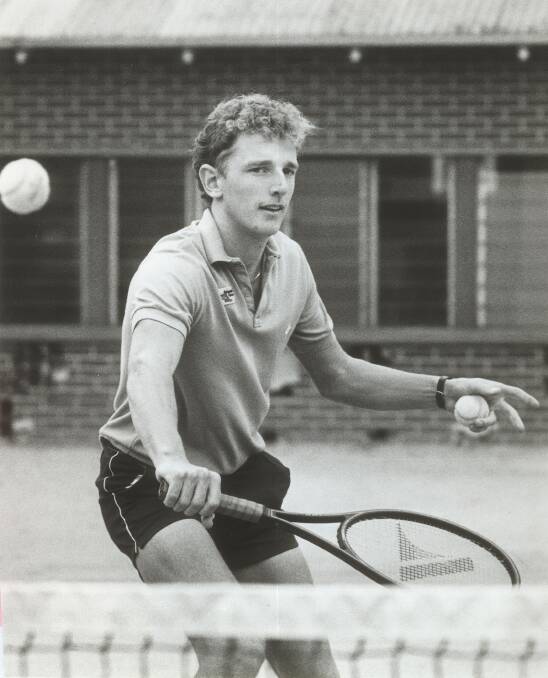
BG: Holbrook coach Alan Curtis approached you with an unusual request as the players were walking off the ground.
DR: Back during that era the grand final was played on a Sunday. Anyhow Alan asked me if we could hold the replay the following Saturday instead of the Sunday as he had an overseas holiday booked as was due to fly out on the Sunday.
BG: Were you happy to accommodate him?
DR: I just looked at him and said 'enjoy your holiday mate.'
BG: So Alan missed the replay?
DR: From memory Alan flew to Melbourne straight after the match in time to catch his flight overseas.
BG: So you didn't even contemplate switching days?
DR: I just thought if the shoe was on the other foot Holbrook wouldn't swap days so I wasn't going to do them any favours.
BG: Kiewa-Sandy Creek won the replay quite convincingly?
DR: I remember the body language of the two sides after the draw. We had the mindset that we had got out of jail and were determined to not let a golden opportunity slip a second time. In contrast Holbrook was devastated that they didn't win. We won the replay by six goals.
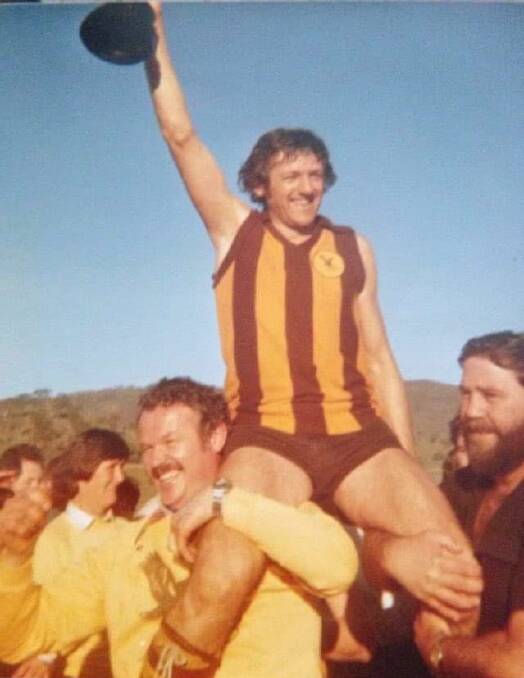
BG: You had a few players that weren't fond of training during your time as coach?
DR: David Crothers comes to mind. David told me after I retired that he would drive up and down the main street watching training and then arrive when we were almost finished and say he had been held up at work.
BG: There was a funny incident at training in 1994 when Doug Norton-Smith was coach?
DR: I don't know what Doug was thinking but told David because you have trained well tonight, you can go in early.
BG: David was also known as a bit of a practical joker around the club?
DR: David has a shower and heads to the bar for a couple of beers. The rest of the players come in half-an-hour later to have a shower. The only problem was nobody had a towel. We later found out that David went through everyone's bag and grabbed their towel and then hid them all in the manhole.
BG: Ray Cameron was another bloke who wasn't a huge fan of training?
DR: Ray had all the talent in the world but didn't mind getting on the drink during the week. I had to spend a fair amount of time on Ray, making sure he was coming to training. I even dropped him to the reserves a few times for not coming to training.
BG: Did Ray learn his lesson after that?
DR: Not really. One Tuesday night I found out he went to the pub instead of training.
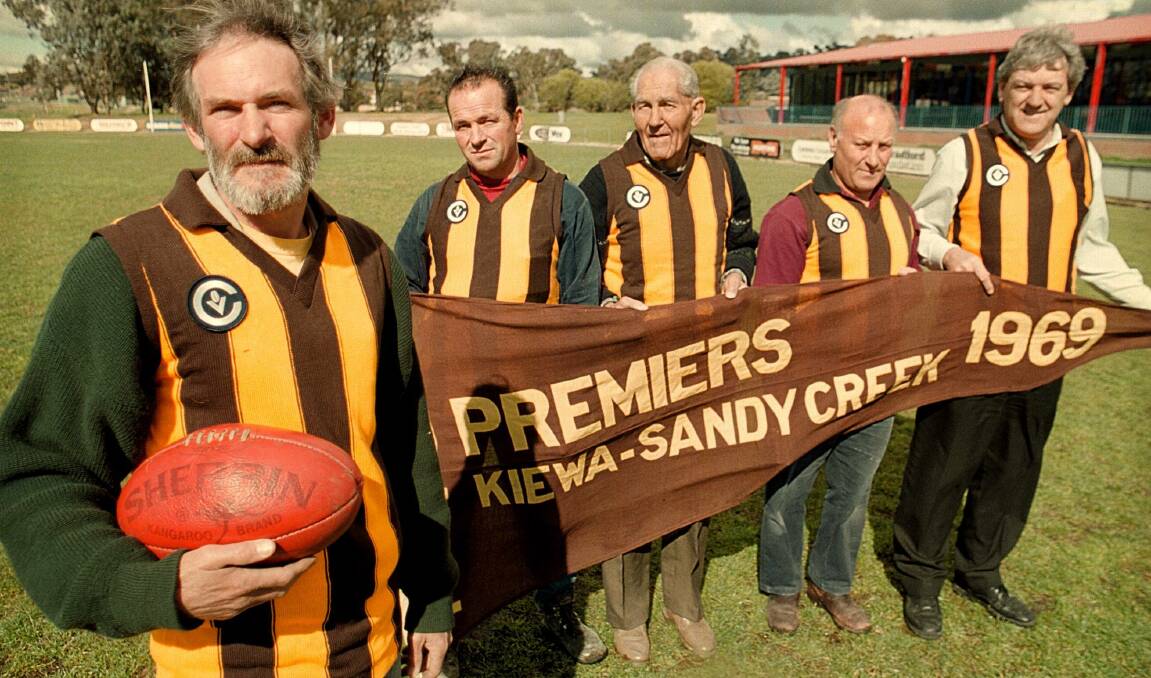
BG: What was Ray's punishment?
DR: Ray trained on the Thursday night and after training finished I said in front of the playing group 'Ray I know you were at the pub on Tuesday night, you can run an extra 10 laps.' Anyhow Ray wasn't happy and said '10 laps, you're joking, I was drinking beer you know, not bloody petrol.'
BG: Did Ray cop his medicine?
DR: The players had a bit of a laugh at his response. But to his credit, he did run the 10 laps.
BG: You waited around to count them?
DR: I knew I couldn't trust him to do it without me watching him. It was a cold, miserable night and I was freezing watching him. Every time he ran past he had a smart comment about how cold I looked and he wasn't feeling the cold while running laps.
BG: Ray was instrumental in the Hawks winning the flag in 1984?
DR: Barnawartha were raging flag favourites and had a gun full-forward in Peter Woodford who kicked 141 goals that season which is still the league record.
BG: Ray kept Woodford to a couple of goals in the second semi-final?
DR: Ray was brilliant and we ended up causing a big upset to go straight through to the decider. Culcairn then rolled Barnawartha in the preliminary final which was a big surprise as well.
BG: How did the 1984 decider unfold?
DR: Scores were basically level at the last change. But we were a bit fresher in the last quarter after having the week off and that was probably the biggest difference.
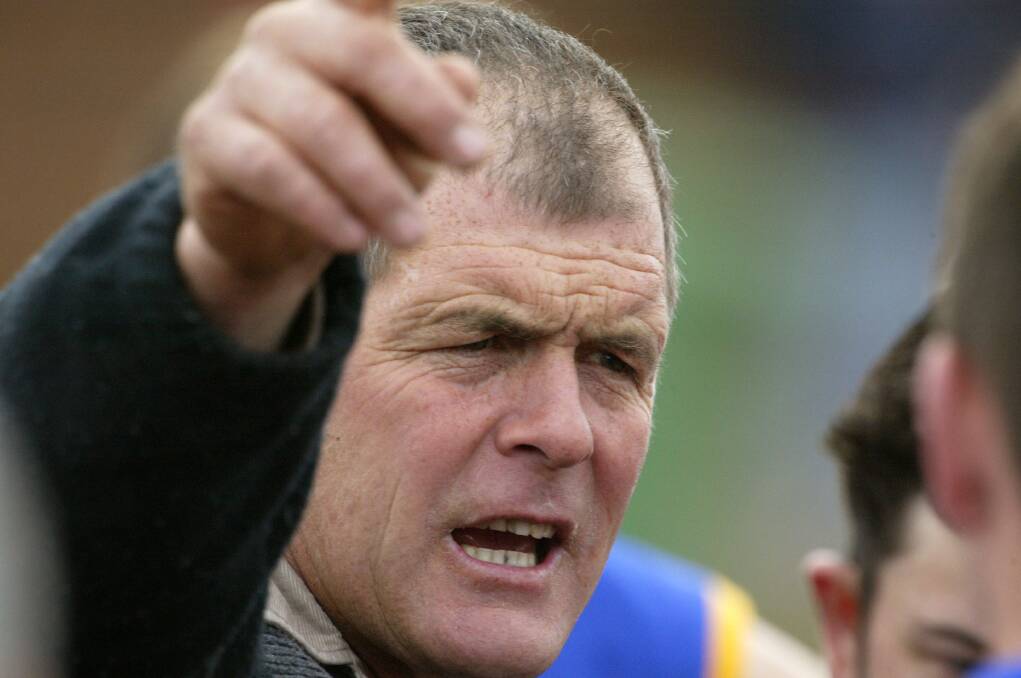
BG: Who were some of the players you rated the highest during your time in the Tallangatta league?
DR: Pound for pound the two best players I saw were Vin O'Neill and Hughie Giltrap.
BG: You retired at the end of 1986 after 151 matches with the Hawks for three flags?
DR: I had coached for six-years and Pat Murphy took over as coach in 1987.
BG: You were lured back to coaching in 1988?
DR: I didn't get involved in the politics but Pat stood down after one season in charge.
BG: You didn't hesitate in helping out the club?
DR: Wayne Bartel got in contact with me and I started off as a playing coach but only lasted four matches. I coached the rest of the season from the sidelines.
BG: What would you consider your career highlight?
DR: It's hard to go past the three flags at Kiewa-Sandy Creek. I was probably too young to really cherish the Wodonga flag in 1969.
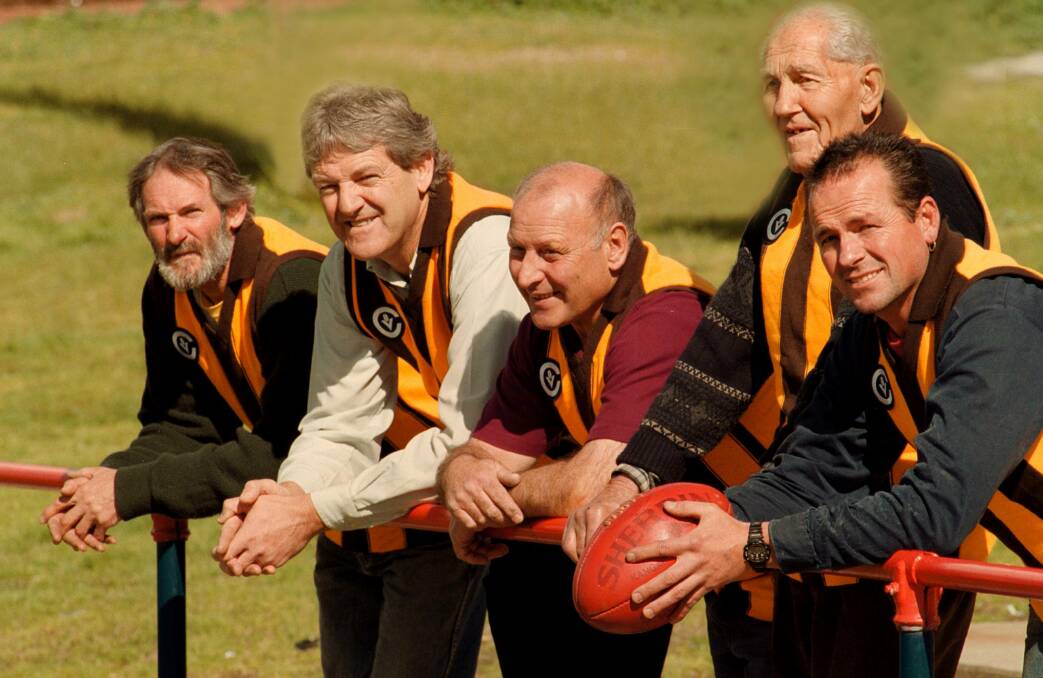
BG: I'm guessing being named in both Wodonga's Team of the Century and Kiewa-Sandy Creek's Team of the Past 50-years is also right up there?
DR: It is a huge honour, especially Wodonga's when you see some of the names in the side.
BG: Have you got any regrets?
DR: Not really, I enjoyed every second of my career and wouldn't change much about it.
BG: You also coached the Tallangatta league interleague side from 1985-93?
DR: Doug Williams was league president and one of the best administrators going around. I was only too happy to give something back to the league and help out where I could. Doug was also instrumental in the merger of Kiewa and Sandy Creek.


